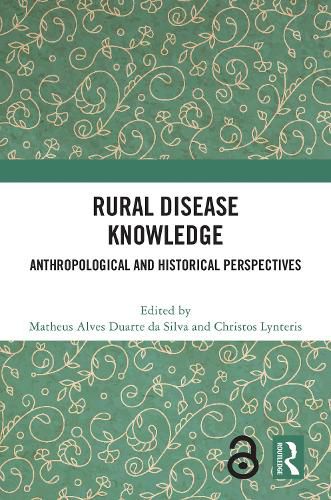Readings Newsletter
Become a Readings Member to make your shopping experience even easier.
Sign in or sign up for free!
You’re not far away from qualifying for FREE standard shipping within Australia
You’ve qualified for FREE standard shipping within Australia
The cart is loading…






Rural Disease Knowledge examines the ways in which knowledge of rural spaces and environments, on the one hand, and infectious diseases, on the other, have become inter-constituted since the late nineteenth century. With contributions by leading anthropologists and historians of medicine, it examines the epistemic co-constitution of the rural and of infectious diseases. Ranging from Brazil, Argentina, and Colombia to Java, Tanzania, West and South Africa, and Britain, the chapters cover diverse geographies, timelines, and diseases, including plague, brucellosis, leishmaniasis, yaws, yellow fever, nagana, sleeping sickness, and Chagas disease. The book considers how human interactions with infectious diseases have impacted ways of knowing and acting on rural spaces and environments, and in turn how human interactions with rural spaces and environments have impacted ways of knowing and acting against infectious diseases. It reflects on how the rural has been configured as a space of either health or sickness over the centuries and around the globe, the role of rural landscapes in the epistemic emergence of microbiology and tropical medicine, and the interaction with global processes such as European imperialism, the emergence of capitalism, and postcolonial nation-building projects. The studies engage with current debates on decolonizing knowledge and highlight how local disease knowledge has troubled and unsettled hegemonic medical perspectives and created new ways of understanding the relationship between diseases and rural spaces and environments. The volume will be of particular interest to scholars of medical anthropology, global health, and the history of medicine.
$9.00 standard shipping within Australia
FREE standard shipping within Australia for orders over $100.00
Express & International shipping calculated at checkout
Rural Disease Knowledge examines the ways in which knowledge of rural spaces and environments, on the one hand, and infectious diseases, on the other, have become inter-constituted since the late nineteenth century. With contributions by leading anthropologists and historians of medicine, it examines the epistemic co-constitution of the rural and of infectious diseases. Ranging from Brazil, Argentina, and Colombia to Java, Tanzania, West and South Africa, and Britain, the chapters cover diverse geographies, timelines, and diseases, including plague, brucellosis, leishmaniasis, yaws, yellow fever, nagana, sleeping sickness, and Chagas disease. The book considers how human interactions with infectious diseases have impacted ways of knowing and acting on rural spaces and environments, and in turn how human interactions with rural spaces and environments have impacted ways of knowing and acting against infectious diseases. It reflects on how the rural has been configured as a space of either health or sickness over the centuries and around the globe, the role of rural landscapes in the epistemic emergence of microbiology and tropical medicine, and the interaction with global processes such as European imperialism, the emergence of capitalism, and postcolonial nation-building projects. The studies engage with current debates on decolonizing knowledge and highlight how local disease knowledge has troubled and unsettled hegemonic medical perspectives and created new ways of understanding the relationship between diseases and rural spaces and environments. The volume will be of particular interest to scholars of medical anthropology, global health, and the history of medicine.